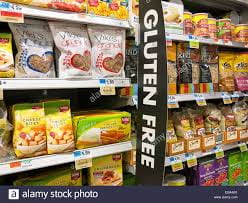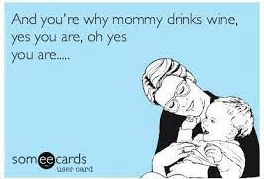People start and (sometimes) stop drinking at all different phases of life for all different reasons. The expectation, however, is that everyone’s drinking. The internet, the bartender and the billboards all tell us that’s what you do. Period. 
In the era of health experiments like detoxes, yoga retreats and juicing, we take a touristic approach to health experiences. Sober curious is something I perceive to be similar in this way, which means it can be marketed in the same way. The buzz word was coined by Ruby Warrington, author of “Sober Curious: The Blissful Sleep, Greater Focus, Limitless Presence, and Deep Connection Awaiting Us All on the Other Side of Alcohol.”
Additionally, bars for the sober curious are popping up everywhere, such as Sans Bar in Austin, TX and Ambrosia Elixirs in Williamsburg, NY.
According to a British study from 2016, those who participated in Dry January experienced varying health benefits, including “increased drink refusal self-efficacy” and, of course, no hangovers. The significance of the short breaks in drinking influencing  health in this way speaks to the idea that people can experiment with sobriety the way they can experiment with the Keto/dairy free/gluten-free/vegan/vegetarian/Paleo/Whole30 diet. Grocery and supplement stores have entire departments dedicated to diet categories, and alcohol stores and departments can easily be merchandised in this way for zero percent products. The increase in non-alcoholic beers and mocktails makes it easy to see how this would be possible.
health in this way speaks to the idea that people can experiment with sobriety the way they can experiment with the Keto/dairy free/gluten-free/vegan/vegetarian/Paleo/Whole30 diet. Grocery and supplement stores have entire departments dedicated to diet categories, and alcohol stores and departments can easily be merchandised in this way for zero percent products. The increase in non-alcoholic beers and mocktails makes it easy to see how this would be possible.

By marketing sobriety as a healthy experience, we open peoples’ perceptions of sobriety, and the conversation around sobriety becomes more open as a result. In my experience with intentional sobriety, people almost always have needed an explanation for the absence of a drink in my hand. I’ve even been seriously confronted about pregnancy before. I have yet to become pregnant, but that seems to check out more easily in a crowd than the long-winded, baggage-ridden idea that I’m not a great drinker and have damaged a lot of relationships with my drinking, not to mention a murky family history with addiction. No, no, no, you get back to your game of pool, though, I promise it’s not a big deal!
I’ve never participated personally in a sobriety challenge like Dry January, only the challenge of getting truly sober. It was genuinely difficult surrounded by friends who never took a break from daily drinking after college ended and were relying heavily on it to manage their vulnerability and mental health issues. I have a personal notion that my not drinking made people uncomfortable, knowing that they, too, probably should have taken a step back from the bar. This illuminates the ambivalence we’ve discussed in class and the idea that there is such a thing as responsible drinking for some of us. People say that the binge drinking criteria seems too low- “five drinks in a night?! That’s a Tuesday at home!” I think the ugly reality may just be that many young adults don’t have the best drinking habits, but no one wants to admit that.
Sober curiosity is an easy movement to promote and absolutely has a place in the era of wellness exploration. Dry bars and social circles based on sobriety (that don’t meet each other in recovery meetings, per se) are carving out their places in this world of heavy drinking.





 Guilty that they were so difficult to parent that their mothers spent years in rehab? Comfortable with the idea that drinking is for parents, perpetuating the cycle of parental alcohol use disorders? Confused about why the 2010s was a decade full of mothers turning to alcohol in a comfortably sassy advertising climate? This future holds a whole new host of adolescent trauma.
Guilty that they were so difficult to parent that their mothers spent years in rehab? Comfortable with the idea that drinking is for parents, perpetuating the cycle of parental alcohol use disorders? Confused about why the 2010s was a decade full of mothers turning to alcohol in a comfortably sassy advertising climate? This future holds a whole new host of adolescent trauma.